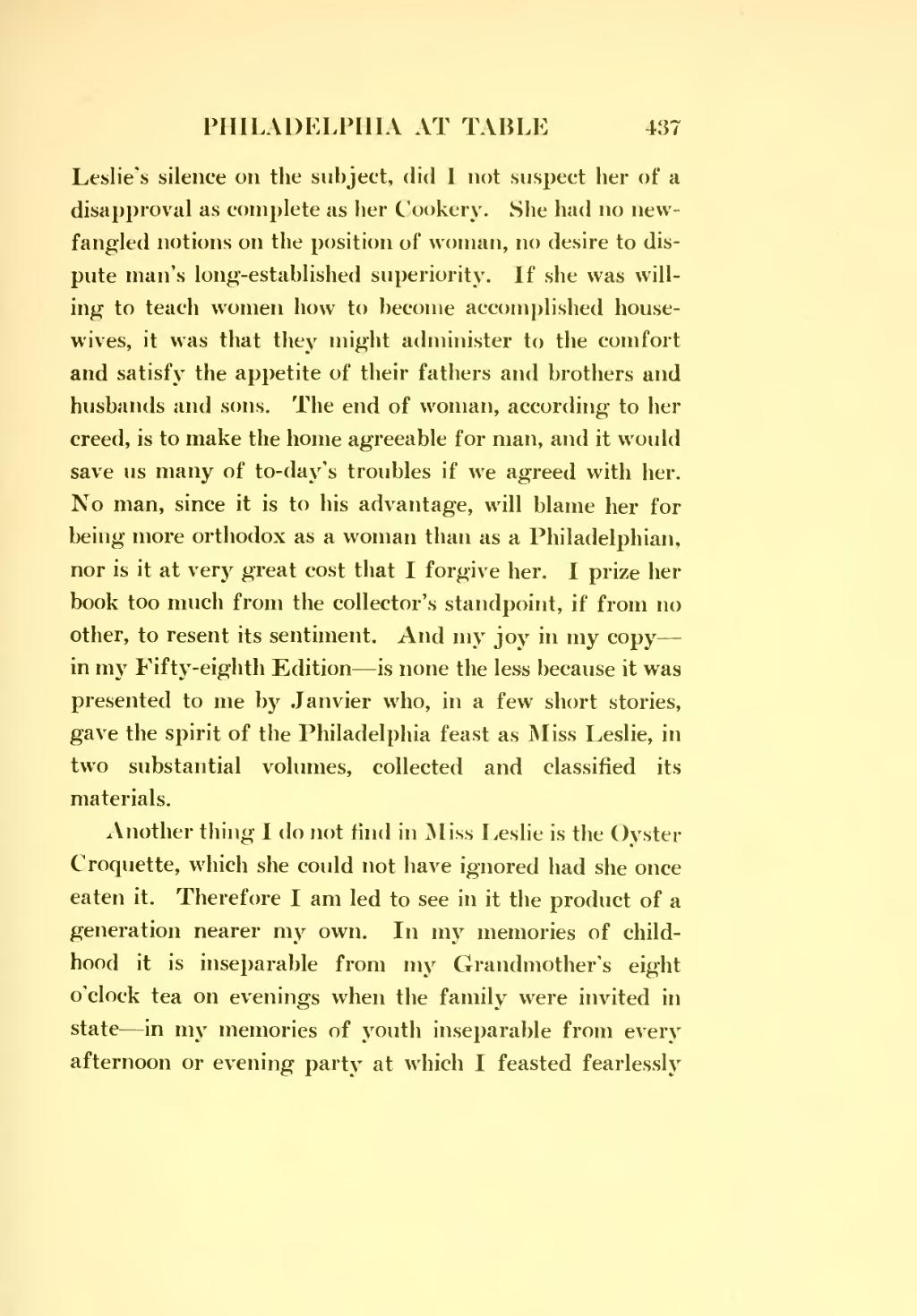Leslie's silence on the subject, did I not suspect her of a disapproval as complete as her Cookery. She had no new-fangled notions on the position of woman, no desire to dispute man's long-established superiority. If she was willing to teach women how to become accomplished housewives, it was that they might administer to the comfort and satisfy the appetite of their fathers and brothers and husbands and sons. The end of woman, according to her creed, is to make the home agreeable for man, and it would save us many of to-day's troubles if we agreed with her. No man, since it is to his advantage, will blame her for being more orthodox as a woman than as a Philadelphian, nor is it at very great cost that I forgive her. I prize her book too much from the collector's standpoint, if from no other, to resent its sentiment. And my joy in my copy—in my Fifty-eighth Edition—is none the less because it was presented to me by Janvier who, in a few short stories, gave the spirit of the Philadelphia feast as Miss Leslie, in two substantial volumes, collected and classified its materials.
Another thing I do not find in Miss Leslie is the Oyster Croquette, which she could not have ignored had she once eaten it. Therefore I am led to see in it the product of a generation nearer my own. In my memories of childhood it is inseparable from my Grandmother's eight o'clock tea on evenings when the family were invited in state—in my memories of youth inseparable from every afternoon or evening party at which I feasted fearlessly
